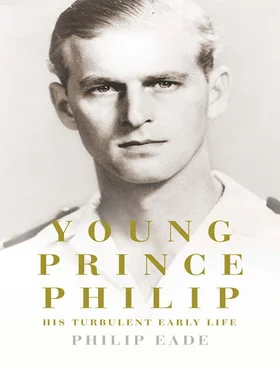She soon expanded her hospital, taking over four more houses and later, as the Greek army advance continued northwards, she moved on to Kozani, where on one occasion she found herself assisting at the amputation of a leg, administering chloroform and preventing the patient from biting his tongue. ‘Once I got over my feeling of disgust, it was very interesting, of course,’ she assured her mother. When the operation was over, the leg lay abandoned on the floor of the ward and Alice suggested someone ought to take it away. Her assistant duly picked it up, ‘wrapped it up in some stuff, put it under her arm and marched out of the hospital to find a place to bury it in. But she never noticed that she left the bloody end uncovered, and as she is as deaf as I, although I shouted after her, she went on unconcerned, and everybody she passed nearly retched with disgust – and, of course, I ended by laughing.’ 31
As the Greeks pressed on through the snowy mountains towards Salonika, the capital of Macedonia, determined to wrest it from Turkish control before the Bulgarians did, Alice remained constantly at or near the front. In each place she passed through she left a well-organized hospital, work for which she would later be personally thanked by prime minister Venizelos. 32
On 12 November 1912 Venizelos accompanied the king and his heir as they rode in triumph through the streets of Salonika. There was great rejoicing throughout Greece, and Alice and Andrea went to stay with the king, who had installed himself in the Sultan’s villa in the city. In March 1913 Janina, the capital of Epirus, also fell to the Greeks – witnessed by Alice who was again organizing the hospitals – and by the end of the Second Balkan War that summer, which began when the Bulgarians ill-advisedly attacked both Greece and Serbia, Greece had almost doubled in size and population, having gained southern Epirus, Macedonia, Crete and some Aegean islands.
After the tribulations of recent years, these territorial gains were a source of great relief and happiness to King George, and at lunch one day, on 18 March 1913, he announced that he now intended to abdicate on his golden jubilee in October, leaving his newly popular and auspiciously named son Constantine to succeed him. As the lunch party broke up, one of the generals present ventured to warn the king that his habit of strolling freely about the streets was perhaps more dangerous in Salonika than it was in Athens, to which the king replied that he did not wish for such a sermon. Later that afternoon, accompanied by his equerry and two policemen, the king set out for his usual walk to the White Tower. On his way back, as he passed a café, a man came out and shot him dead with a revolver. The assassin turned out to be an insane Greek rather than a Bulgarian or Turkish nationalist as had been feared, and he subsequently leapt to his death from a window while awaiting trial.
King George I’s body was carried by sea to Athens, from where a train took the coffin to Tatoï. Crowds of peasants collected alongside the track and knelt as the train passed. 33The British ambassador reported that
Tragic as was the manner of the King’s death, he was at least happy in the moment of it. He had seen the edifice he had laboured to construct for 50 years crowned by the victories of his army under the leadership of his son and successor. He had the assurance that his dynasty was at least firmly seated upon the throne which he had often during his long reign been tempted to abandon in despair. He had seen his aspirations realized beyond his wildest dreams. He will live on in the memories of his people as a martyr to the national cause. 34
King George’s son was now hailed in some newspapers as Constantine XII, successor to the last Greek ruler of Byzantium who had died during the siege of Constantinople in 1453, although in fact he ascended the throne as Constantine I. The British ambassador deemed him ‘inferior in intelligence to his father, and wanting in his dexterous pliability’, yet at the same time ‘a man of stronger character’ who ‘may well be fitted to deal with the new problems which will arise in the new situation’. 35His reign was to prove rather less happy and considerably less enduring.
One of Constantine’s handicaps was that he had married Princess Sophie of Prussia, the sister of Kaiser Wilhelm II. On the outbreak of the First World War he was thus torn between loyalty to his wife and a feeling that Germany might win on the one hand, and pressure to join the Allies on the other. His decision to stay neutral placed Greece at odds with both sides and thereafter lowered the Greek royal family in the estimation of the British people.
The outbreak of the European war placed Alice, born a German princess yet with her father serving as Britain’s First Sea Lord, in a similarly awkward position. Louis of Battenberg had been responsible for mobilizing the British fleet prior to the war and on 4 August 1914 he sent the signal: ‘Admiralty to All Ships. Commence hostilities against Germany.’ 36By then he had served for forty-six years in the Royal Navy, yet his accent and mannerisms were still faintly German, and he kept German staff in his household. Within the navy, he was acknowledged as an exceptional sea officer and Fleet Commander, and a kind and courtly man; however, his insistence that there were certain things that were done more efficiently in his country of birth inevitably aroused hostility towards him. 37Following the outbreak of war, the British popular press whipped up a wave of scurrilous anti-German paranoia, during which anyone or anything deemed to be of German origin was liable to come under attack. Shop windows were smashed, dachshunds were kicked in the street and innocent people with Teutonic-sounding names were arrested and imprisoned without trial. When two German cruisers mysteriously evaded a British force in the eastern Mediterranean and made it to Constantinople, it was whispered that a British admiral must have assisted them and that Louis Battenberg was a German spy. Of course, George V, too, had a German name and connections, and the wholeheartedness of his commitment to the Allied cause also came under scrutiny. On one occasion, Lord Kitchener ‘had solemnly to assure the Cabinet that lights seen flashing over Sandringham during a German air sortie were caused by the car of the rector returning home after dinner’. 38Winston Churchill, then First Lord of the Admiralty, attempted to make light of all the xenophobic hysteria, and when told off for drinking hock, he responded: ‘I am interning it.’ 39Nevertheless, he worried about the effect of all the attacks on his First Sea Lord’s powers of concentration, and soon decided that the country’s best interests would be served by replacing Louis with the more dynamic Admiral ‘Jacky’ Fisher. 40It was with some relief, therefore, that he accepted Louis’ resignation on 29 October 1914, even though it deprived the Royal Navy of one of its shrewdest strategic brains.
The whole episode was a great tragedy for Louis. ‘I feel for him deeply,’ wrote George V in his diary, ‘there is no more loyal man in the country.’ 41However, Battenberg’s younger son, also called Louis but known in the family as Dickie, then a fourteen-year-old naval cadet at Osborne, casually remarked to a contemporary: ‘It doesn’t really matter. Of course I shall take his place.’ 42His vow to avenge the family’s humiliation would propel him on a career path even more remarkable than that of his father.
During the early part of the First World War, Andrea was stationed at Salonika, but in 1916 his brother King Constantine sent him on a diplomatic mission to London and Paris to assure the Allies that Greece was not on the German side. Alice remained mostly in Athens, looking after their four daughters. The youngest of these, Sophie, had been born in 1914 and was always known in the family as Tiny, although she grew to be the tallest of the four sisters. Shortly after her birth her teenage uncle Dickie had written to his mother, Victoria: ‘Please congratulate Alice from me, but it was silly not to have a boy for once in a way.’ 43
Читать дальше












